Swift River Pecans Implements Regenerative Agriculture Approach to Pecan Farming
Troy Swift shares how Swift River Pecans in Fentress, Texas is finding success in their orchards with regenerative agriculture practices.
As a pecan farmer, I’m always on the lookout for ways to improve the health of my trees. Recently, I’m finding success with the regenerative approach.
Regenerative agriculture and sustainable farming are popular subjects today. Farmers can learn how to adapt them to their farms by studying soil and plant health and by researching a broader range of fertilizers, weed control and pest control techniques. Use of conventional chemicals remains an option when alternatives are not available or effective. That way, these techniques are a flexible alternative to organic farming, because they do not require an organic certification and restrictions.
So why are we considering regenerative techniques when we have been (mostly) successful using conventional methods?
We aren’t as successful as we would like to be. While most of our trees are in good river-bottom soils and are productive, we have some areas that are not as productive or are in decline. We managed them with everything we knew to do but that process was leading to failure. I began asking scientists and smart people questions. The answer was usually “something wrong with the soil” or “rootstock.”
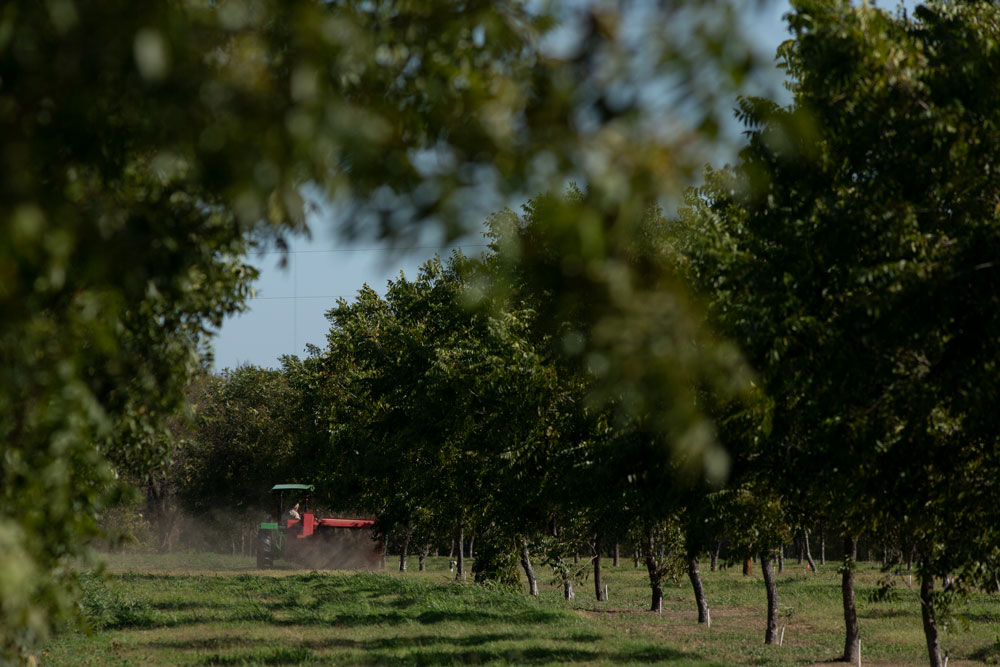
Seeing is believing
I then began asking questions of agricultural experts about cover crops, leaf scorch, early defoliation, scab control, etc., and was referred to a grower who turned around a struggling orchard by focusing on soil health. He bought an existing orchard in the 1990s that was in bad condition and not in a river bottom. The orchard had been planted on former cotton ground in an upland location with about 3 feet of heavy black land clay soil. He had unproductive, scorched, dying trees in some locations in the orchard. Some pecan experts told him he was wasting his time even trying to grow pecans there, but he was determined.
For the past 15 years, he has concentrated on balancing the soil minerals and improving the life in the soil by applying biological amendments and planting cover crops. He maintains tree spacing, mows only enough for irrigation and harvesters to function, and has 100% ground-cover vegetation to control weeds without herbicides. He has seen the soil improve in the lab results from both conventional and biological soil tests and by the tree response.
I have visited his orchard several times and see very little disease or tree health variability through his different soil profiles and elevations. His trees look great, and his business is profitable!
When I considered the history of his trees – old cotton field, leaf scorch, tree death, poor production – I said to myself, “sounds familiar.” So, I began my education primarily on soil health. As I expanded into other regenerative practices, I’ve seen the benefits they bring in several areas.
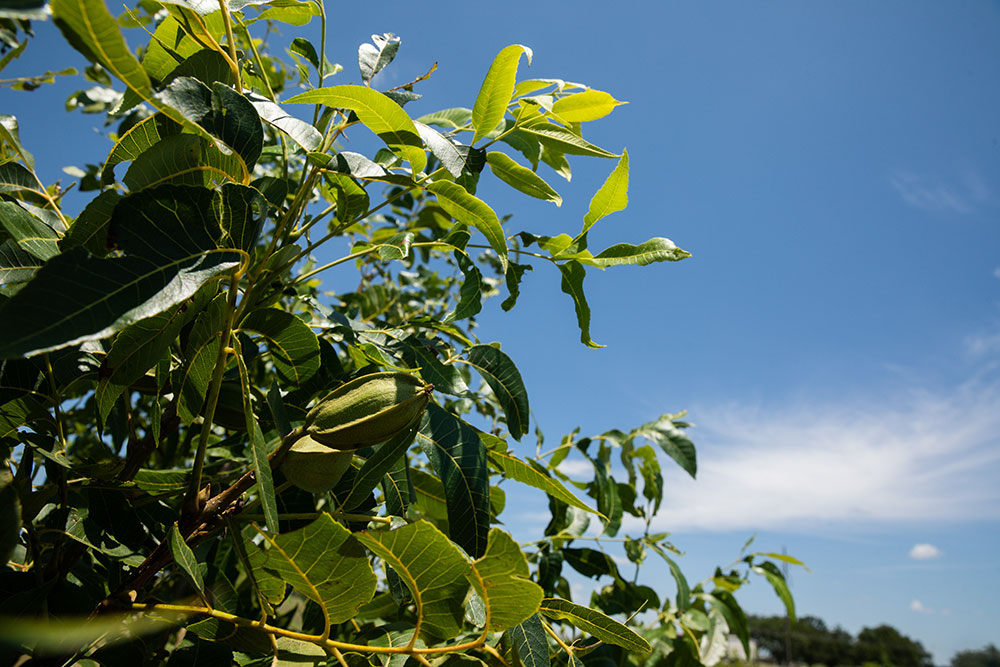
Aligning with customer expectations and demands
Customers are interested in where their food comes from and how safe, nutritious and sustainable it is. Pecans are getting a lot of attention as a nutritional food, so sustainable agriculture ideas mesh well with that subject. Small retail operations can advertise their tangible regenerative data and programs. Website presentations or in-person interactions can inform and educate customers about your sustainable practices by discussing topics such as:
- natural insect predators;
- cover crops that produce nitrogen and improve soil health;
- disease-resistant hybrids;
- increased soil microbial life;
- carbon sequestration;
- improved water-holding capacity; and
- reduced fertilizer, herbicide, and insecticide use.
Restaurants and bakeries can leverage similar topics into their sales strategy, and regenerative production also ties in well with the “buy local” idea.
The bottom line is that regenerative agriculture is marketable to those selective customers who care about sustainable foods while probably having no negative effect on customers who are not concerned with or aware of sustainable agriculture.
Large commercial customers and some governments entities require or will require sustainable certifications or specific chemical free certifications of some kind in the future. Like it or not – many consumers of the world are worried about global warming, erosion, water management, water quality, air quality and emissions, carbon sequestration, food nutrition, wildlife health and other issues. Most farmers are concerned about the same issues, and many already have good programs in place. We need to document the procedures we are already doing, implement improved procedures and communicate to our customers, large and small.
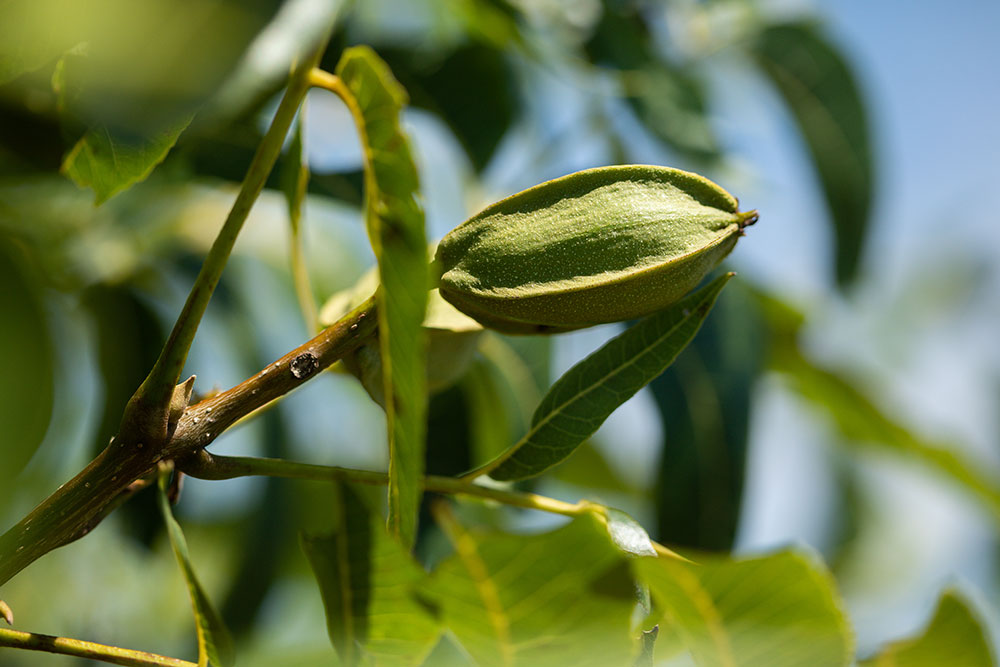
Employee safety and satisfaction
People want a safe and healthy place to work. If we can use improved soil and plant health to ward off pests and disease, we will need fewer chemicals. Fewer chemicals mean reduced exposure risk for employees. Also, universities and educational facilities are teaching soil health principles and sustainable agriculture to students. Graduates may be more willing or excited to work with processes they have been educated in.
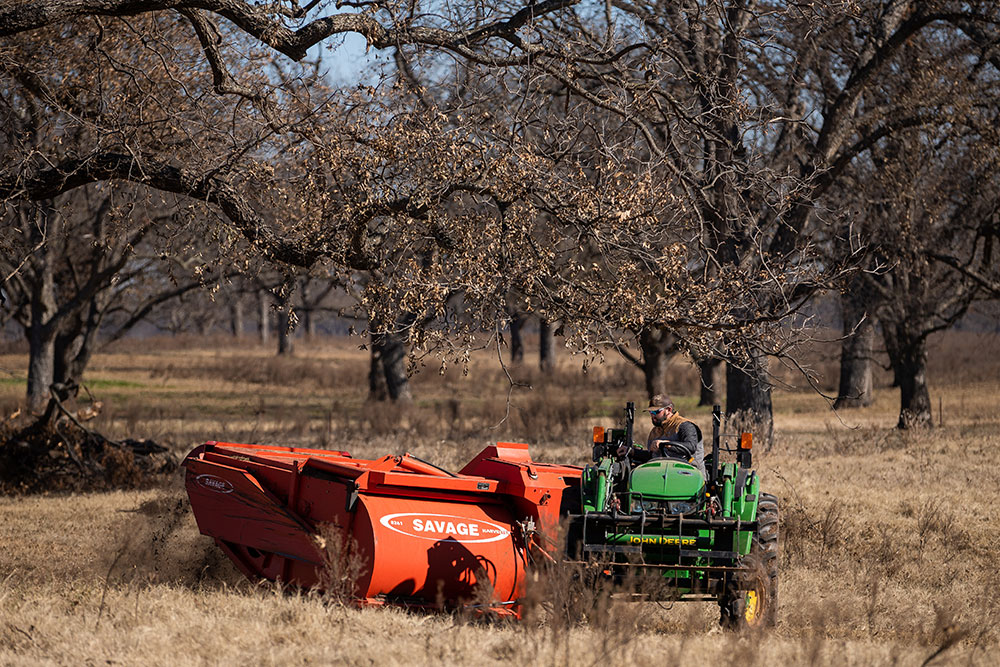
Continuous improvement in business is essential
Any business that stands still will be out-competed. Some competing nut industries already have programs in place.
It makes sense to prepare for the future today. Energy, water and chemical use will continue to be major social, political, environmental, and economic concerns for the foreseeable future. Modifying our farming practices to understand and maximize the benefit of natural processes is essential to optimizing the use of energy, water and chemicals.
And while the future of carbon markets is not yet understood, there is the possibility this could be a business opportunity we will want to consider. Having substantiated programs in place at that time may be a good business strategy for the future.
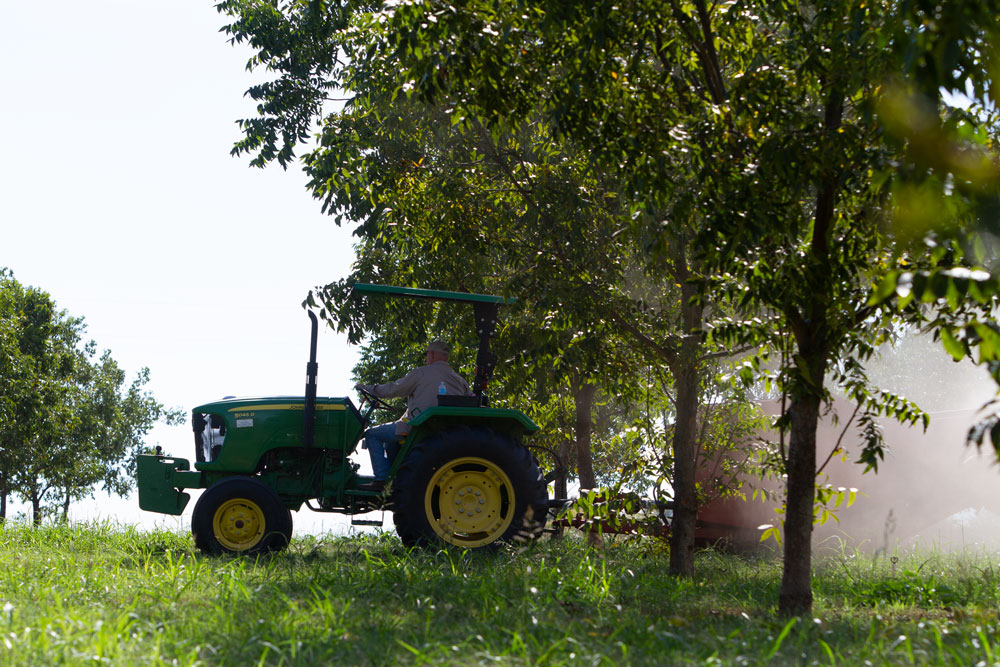
Conclusion
I have always disliked spraying herbicides and insecticides, even with proper personal protective equipment (PPE), safety procedures and training in place. But I dislike not having a crop worse. With the regenerative approach, we can still use chemical control if needed. We’re working toward our goal of not needing them by improving our soil health, plant health, biodiversity, natural predators of pest populations, and soil water-holding capacity. We are trying to integrate these practices as additional tools for our integrated pest management strategy.
Additionally, we see regenerative agriculture as an opportunity to improve sales and build customer awareness of our operation. We also see it as a way to reduce some impact of future government initiatives or rules and perhaps capitalize on programs implemented by large corporations or governments.
We must align as an industry with customer expectations.
We want our farm to be a good, safe place to work and we want to be proud of the quality of our pecans.

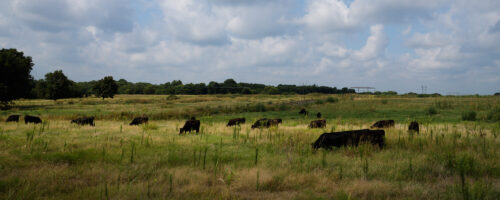
Comment
Leave a Reply
1 comment on: "Swift River Pecans Implements Regenerative Agriculture Approach to Pecan Farming""
Joe
June 25, 2023Check out Howard Garrett the dirt doctor and his organic natural way of tree care